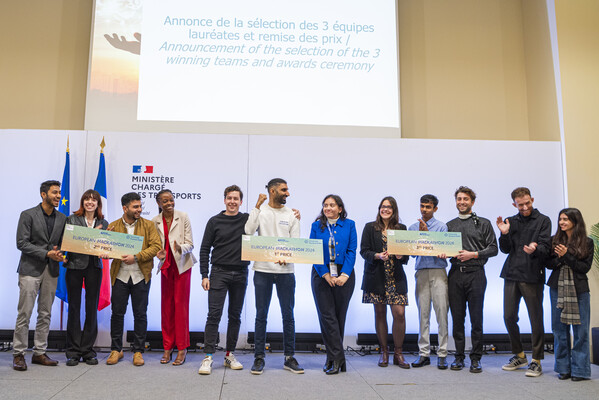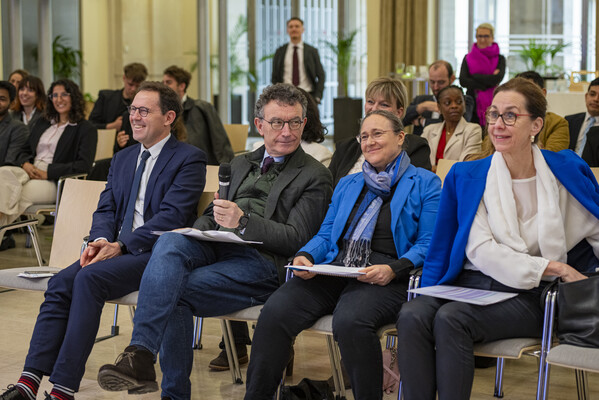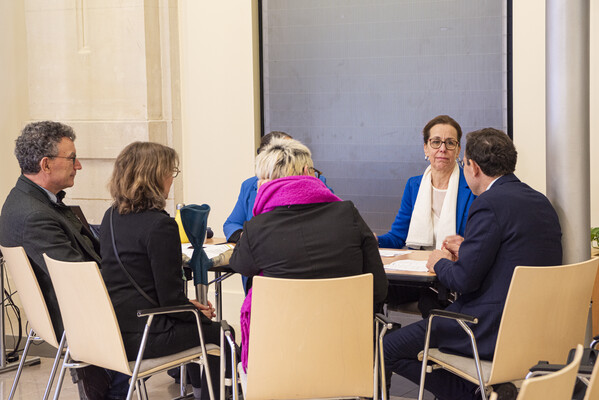European students work on improving infrastructure for active mobility - 3rd European Hackathon
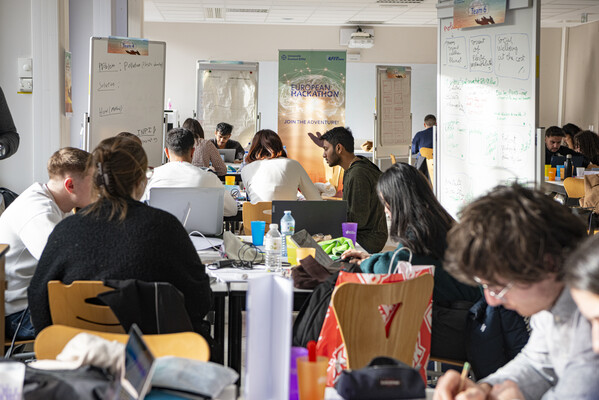
What are the objectives of this hackathon?
The aim of the Hackathon is to mobilise teams of students from different backgrounds to tackle the issue of infrastructure investment needs by looking upstream at mobility practices, the factors that determine them and the levers that can be used to make them more sustainable.
Infrastructure needs and their prioritisation should not obscure the fact that new challenges and trends require a broader approach than purely technical aspects. The interest lies in combining technical approaches with those of the human and social sciences, and even design, in order to address all facets of an issue.
A European event
Transport and mobility are inherently European issues. When it comes to transport, it is vital that the European dimension is taken into account when analysing national situations.
No less than 36 students worked in groups on this subject over 4 days, each with their own particular expertise and perspective, coming from different countries: France (Université Gustave Eiffel), Finland, Italy, Spain, Portugal and the Czech Republic.
The 2024 edition under the banner of active mobility
This year, the Hackathon theme was “How to improve infrastructures for active mobility”, whether it be platforms or hubs for mobility transition. The aim was to deal with all aspects of the subject, in terms of the venue design, the governance of these hubs or platforms, their location and business model.
A series of steps prior to project presentation
The Hackathon took place in several stages, with preliminary remote sessions to provide teams with input from researchers and to discuss initial ideas with the help of our mentors. Time was then devoted to intensive work: 4 days face-to-face sessions on our Paris campus, again supervised by a coach and mentors, researchers and professionals. Finally, on 26th March, the teams presented their projects to the French Ministry of Ecological Transition in front of a high-level jury.
A rich experience for students
The Hackathon not only enables students to think about concrete issues, but also gives them a broader view of the issues. They get a real sense of the value of cross-disciplinary approaches and of combining the expertise and professional cultures of engineers, economists and designers. This experience also gives them an insight into the different ways in which issues arise in different countries.
The event gives the students an opportunity to present their ideas to a panel of academics (something they are used to doing) and public decision-makers.
The idea for this European Hackathon was born in 2021, when AFIT France and Université Gustave Eiffel decided to join forces: AFIT’s desire to stimulate its thinking with innovative and forward-looking contributions, Université Gustave Eiffel's commitment to shedding light on public policies and linking its research and teaching missions to the major issues facing its partners. As Université Gustave Eiffel has a particular interest in regional mobility issues, the idea of a Hackathon emerged naturally, with the ambition from the outset to take the issue to a European level. To achieve this, Université Gustave Eiffel is working with the member universities of the PIONEER Alliance, a European university project focussed on the city of tomorrow.

GREENSHIFT aims to provide commuters a unique and more enjoyable travel experience, encouraging them to use public transport and reduce their carbon footprint. The solution? Create specific zones in the carriages for different types of use (conversation zone, entertainment zone, quiet zone), thereby developing connections between people and creating communities
The jury appreciated the social and inclusive dimension of the project and the way it took into account the diversity of behaviours and mobility expectations.
Type of prize
A 7-dayinterrail ticket validover a one-monthperiod and a book “Train Travel in Europe”.
GREENSHIFT Project1st PRIZE - TEAM 7
- Alice Carolina Bello Barros, IUAV University of Venice (Italy)
- Muhammad Mohsin, LAUREA University of applied sciences (Finland)
- Jan Svoboda, UTB - University Tomas Bata in Zlin (Czech Republic)
- Maria Vaz Sayago, University of Huelva (Spain)
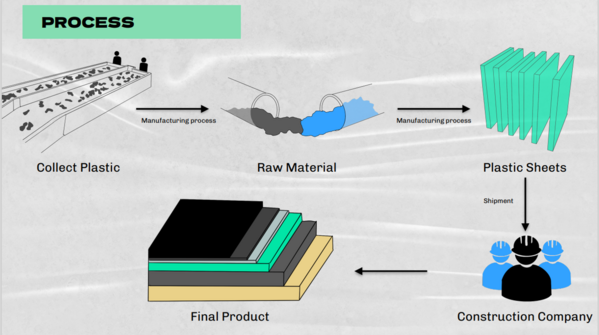
PATH TO SUCCESS is a technical solution for recycling plastics to be incorporated into cycle paths. While enhancing recycling, the proposed solution (the introduction of plastic layers in cycle paths) meets the technical constraints of this type of infrastructure. The design ensures that the soil is protected and the road drainage capacity is maintained.
The jury appreciated the in-depth technical input of the project, with a focus on its feasibility.
Type of prize
A 5-days interrail ticket validover a one-month period and a book “Train Travel in Europe”.
PATH TO SUCCESS Project 2nd PRIZE - TEAM 4
- Ghaith Ashqar, UTB - University Tomas Bata in Zlin (Czech Republic)
- Giulia Abbattista, IUAV University of Venice (Italy)
- Shakthivel Murugavel, Université Gustave Eiffel - ESIEE Paris
- Melaine Sandra Djikiadjie Deutchoua, Université Gustave Eiffel

ESODORÉ aims to tackle mobility by acting directly on our lifestyles at a very early stage, in particular by changing our working habits. ESDORÉ offers innovative, modular workspaces in public parks, particularly those outside city centres, to reduce daily commuter traffic and reconnect workers with nature.
The jury appreciated the disruptive nature of the project and the way lifestyle was taken into account in the behaviour change levers.
Type of prize
A 4-day interrail ticket valid over a one-month period and a book “Train Travel in Europe”.
ESDORÉ project 3rd prize - TEAM 4
- Marta Henriques Martins, ISCTE-University Institute of Lisbon (Portugal)
- Pietro Palazzo, IUAV University of Venice (Italy)
- Patricia Maria Bohoquez Perez, University of Huelva (Spain)
- Divin Poovathunka Joseph, Université Gustave Eiffel - ESIEE Paris
- Erson Halili, LAUREA University of Applied Sciences (Finland)
Jury members
Jury Chairman: Franck Leroy, Chairman of the Conseil régional du Grand Est, member of the Board of AFIT France
Jury members:
- Fabienne Keller, Member of the European Parliament
- Sylvie Chevrier, Deputy International Vice-President, Université Gustave Eiffel
- Gilles Roussel, President, Université Gustave Eiffel
